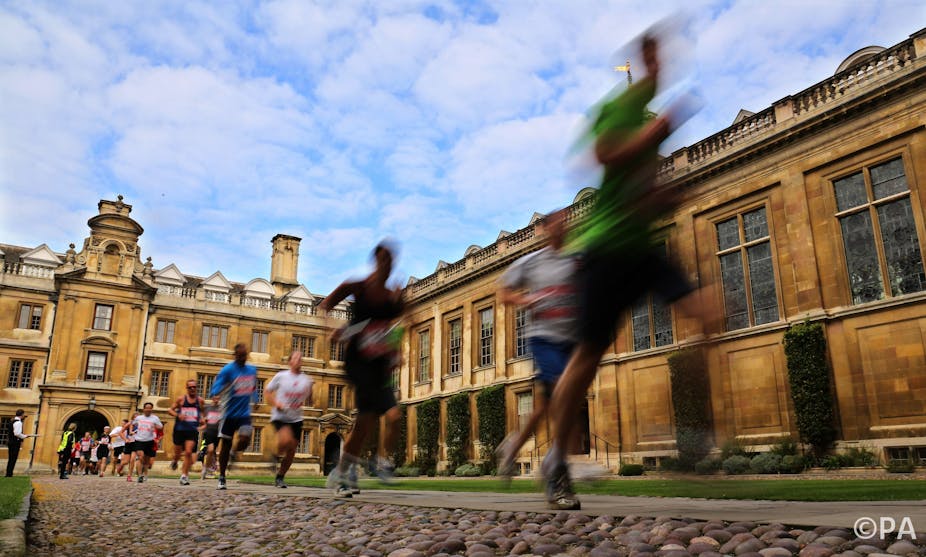The domination of top British universities by people who have attended private schools remains controversial. Defenders of the status quo would argue that successful applicants to Russell Group universities are simply the brightest and the best, and if a disproportionate number of places at these universities go to people who have been to private schools, that simply reflects the fact that talent is concentrated in these schools.
Others would argue that the best way to provide bright working class kids with the same opportunities as their wealthy peers at private schools is to provide selective grammar schools within the state sector. Earlier this month, leading Conservative MPs called for the ban on the creation of new grammar schools to be lifted. This was followed by the announcement that plans for the first new grammar school annexe in 20 years had been revived by Kent County Council.
But how much difference does the type of secondary school a child attends actually make to their chances of going to a top university?
Private beats grammar
Our forthcoming study to be published in the December edition of the Oxford Review of Education, assessed the link between secondary schooling and university access for the generation born in 1970. We analysed the education histories of more than 7,700 people in England and Wales whose lives are being followed by the 1970 British Cohort Study.
Children who attended private and grammar schools were generally from more advantaged backgrounds and had higher test scores before they started secondary school than those at comprehensives, so it was important to take this into account. We were able to exploit detailed information on the cohort members’ family backgrounds and educational histories.
This allowed us to examine the role of childhood socio-economic circumstances, and to assess whether the type of secondary school a child attended made a difference for children from similar backgrounds and with similar test scores up to the age of ten.
Once we had controlled for these factors, there was no statistically significant advantage in the chances of accessing a top university for people who had been to grammar schools compared to those who had been to comprehensives. We were very surprised by this result – as it is generally assumed that being at a school with a high-achieving peer group is beneficial. One possible explanation for the lack of an advantage for grammar school children is that high achievers didn’t stand out as much at grammar schools as at comprehensives.
Double the advantage
Yet we found a powerful advantage associated with private schooling, especially in the case of gaining an elite degree. The private school advantage is partly explained by better school exam results. But even when we compared people with the same exam results at 16 and 18, respondents who had been to private schools had over double the chance of going to a Russell Group university than people who had attended comprehensive schools.
This debunks the view that the domination of elite universities by the privately educated was justified by the concentration of the pool of talent in such schools. Our findings are in line with longstanding results showing that state educated pupils outperform their comparably qualified privately educated peers once at university.
Parental influence
We were also interested in the influence of people’s social background in childhood. We found that having a parent who was a university graduate was linked to far greater chances of university access. And this difference was not simply explained by the children of graduates doing better at school.
Even controlling for cognitive scores and school examination results, people who had a graduate parent had a 50% higher chance of going to university than those whose parents had no qualifications, and the gap was even bigger in the case of access to Russell Group universities.
This research applies to a particular generation born in 1970. But the findings are still relevant today. Recent research has shown that pupils from lower social class backgrounds are still less likely to apply to Russell Group institutions than pupils with similar qualifications from higher class backgrounds. State school applicants are also less likely to apply and to be awarded a place if they do apply, compared to private school pupils.
Bright not enough
Our findings show that an individual’s educational attainment throughout childhood and adolescence is very important to their higher education chances – but being bright is not necessarily enough.
Advantaged social origins and private schooling raises the chances of getting a degree, and especially an elite degree, above and beyond test scores and examination attainment. Given the domination of Britain’s ruling class by graduates of private schools and elite universities, these non-meritocratic processes have important repercussions.
Next read: Hard evidence: Do grammar schools boost social mobility?

